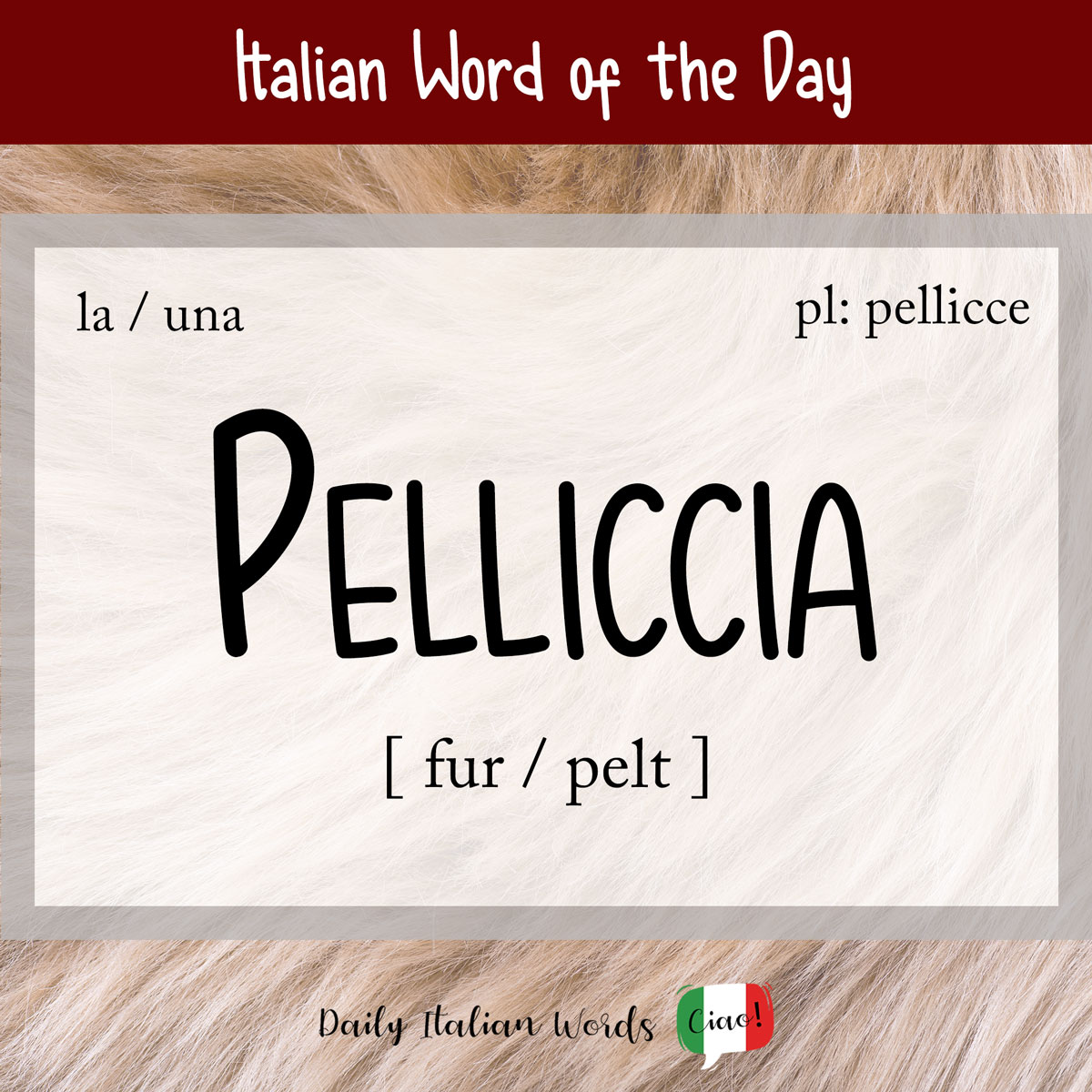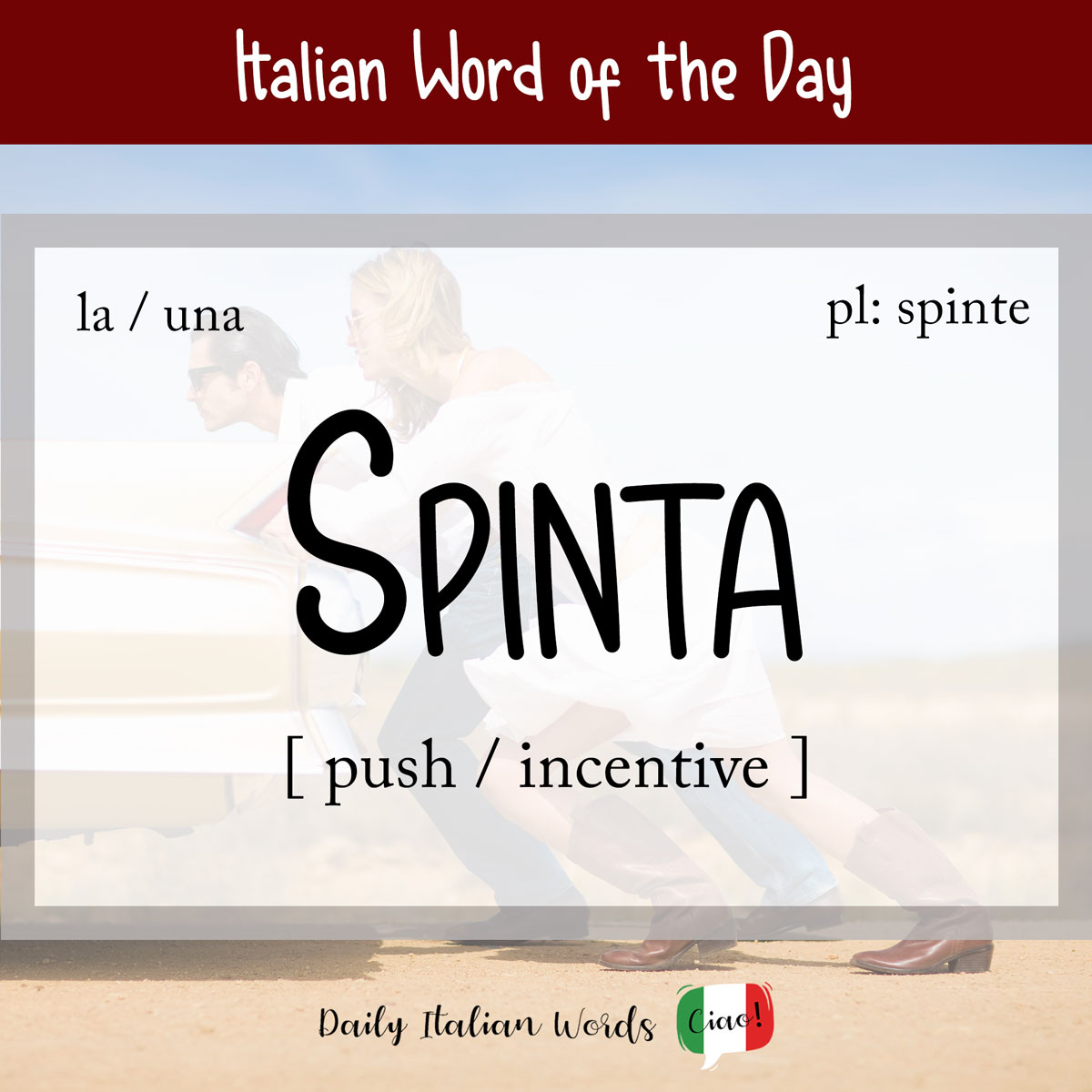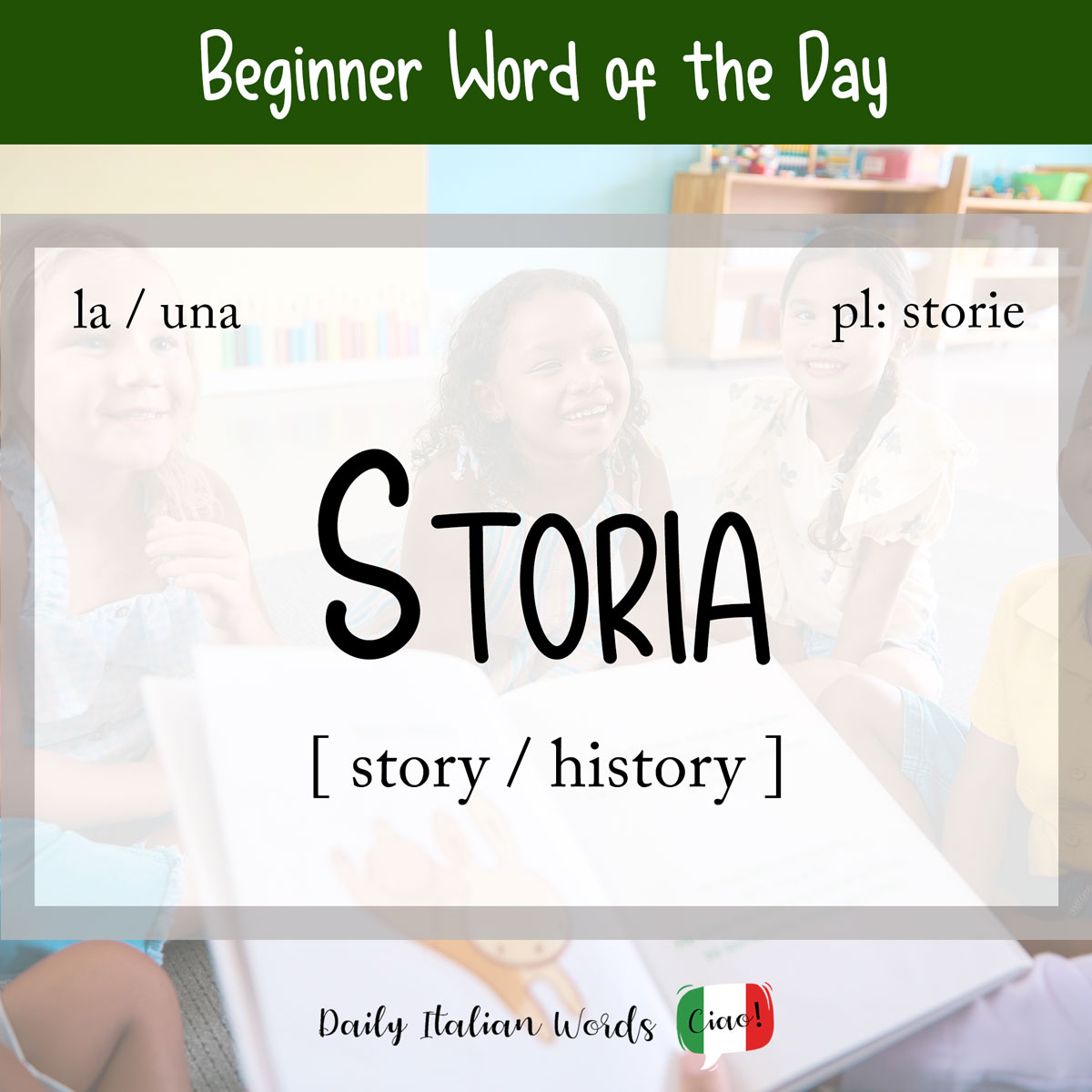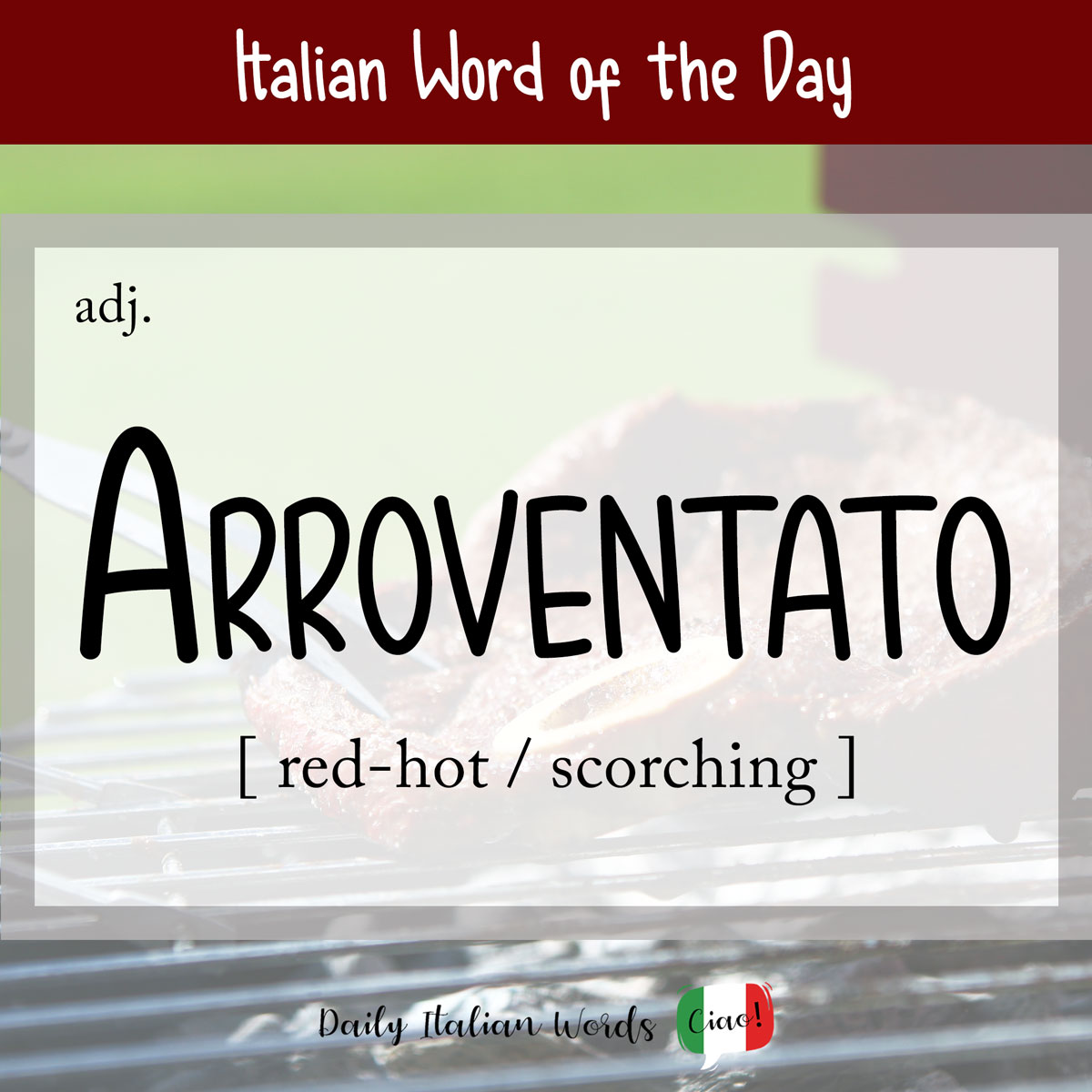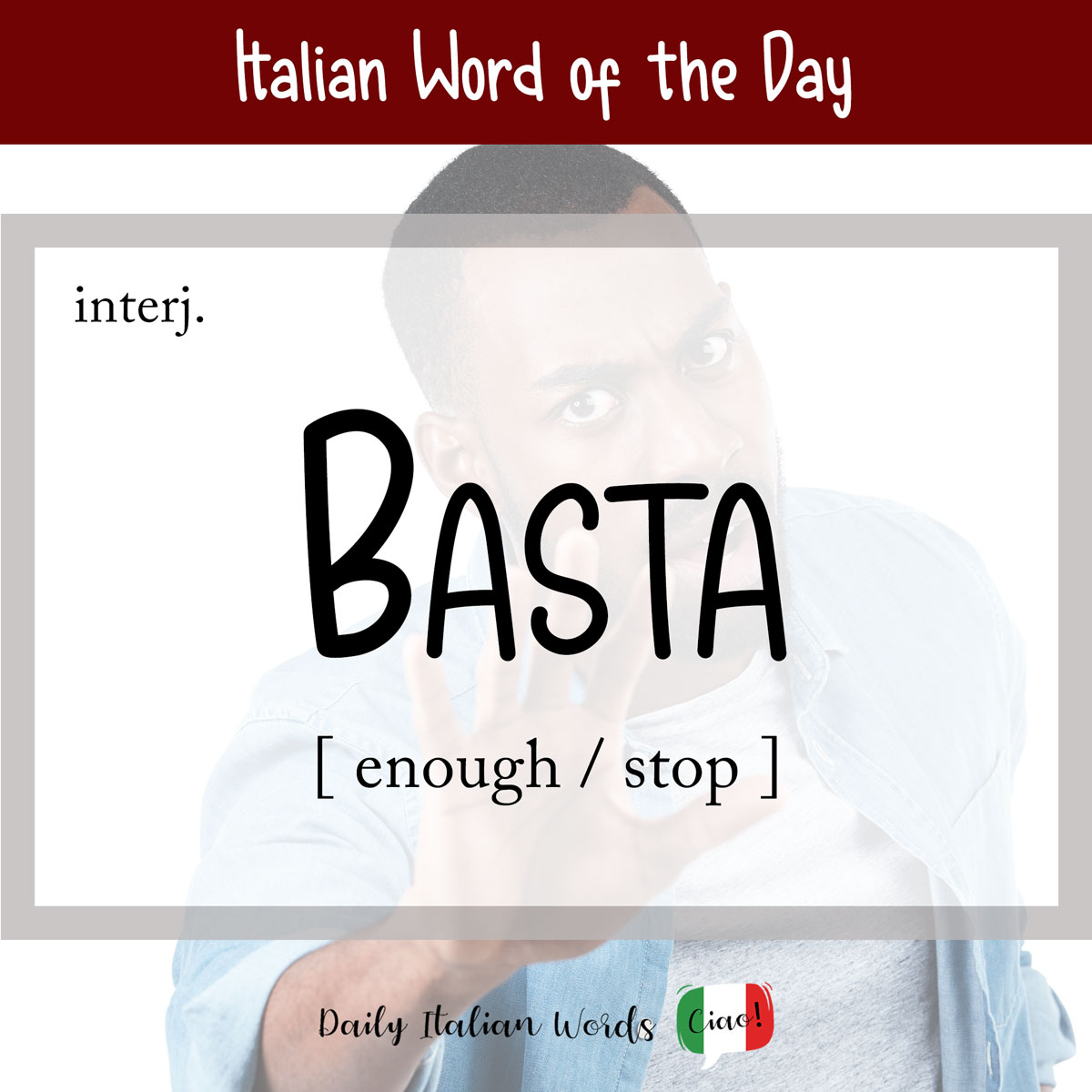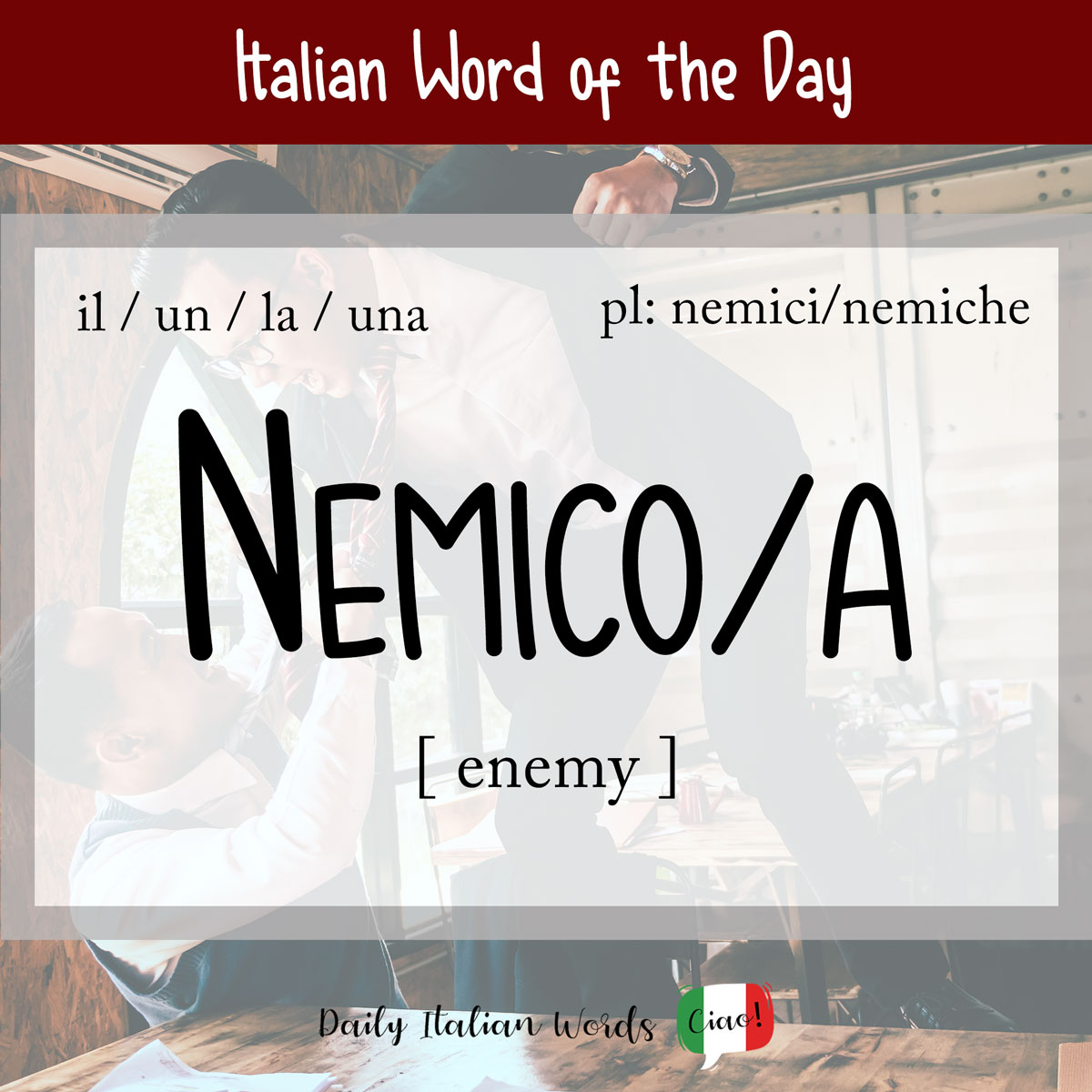Italian Word of the Day: Pelliccia (fur / pelt)
The Italian word for the fur or pelt of an animal is pelliccia. It derives from the late Latin pellicius (“of skin”), which in turn is a derivative of pellis (skin). pelliccia fur Pelliccia is a feminine noun, so it takes the following definite and indefinite articles: Similar to the English word, pelliccia can refer …

